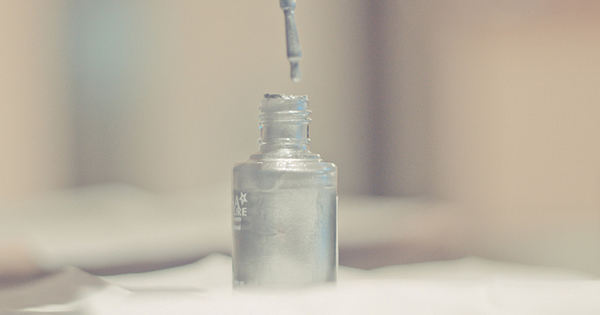
“You’re the third woman who’s borrowed this,” I said to Eleni, handing her my bottle of nail polish. “Welcome,” she said, walking away with a mischievous smile.
Welcome, in other words, to the covenant of women, who quietly track all kinds of things about other women, including just who might have nail gear on a meditation retreat. Eleni, who was seated to my left in the shrine room, returned the polish (Revlon’s “Tea Rose,” if you’re interested), slightly depleted, with a note:
Diana,
Thanks for letting me use your nail polish. Just by sitting next to you (granted, for hours a day) I’m inspired to get more girly and take the time for needed self-care. After a year of not feeling so hot, I appreciated the subconscious encouragement. May your transition be ecstatically expressive and joyous.
It’s one thing for a woman to validate my femininity, but quite another to be told that I validate hers.
This actually happens a lot. Later during that same program, I received a similar note from Becca, the woman on my right, appreciating my effect on her. In past relationships, my crossdressing influenced girlfriends to revisit aspects of their gender that they’d discarded or neglected. Beau, an actress, began dressing more femininely, often wearing my skirts to work. Katherine, who never wore makeup, started to play with it—before her meltdown in a hotel bathroom. While readying herself for a fancy night out, she flashed back to all the times her mother had ridiculed her for experimenting with femininity.
This is not just about makeup and clothes. Find me a woman not traumatized, in one way or another, by the experience of being female in this culture, a woman who hasn’t been subject to discrimination in the work place, or unfair treatment in the medical system, the educational system, the political arena. Find a woman who’s lived a life free of rape or public groping, or sexism from someone she gave her love to. Angela, a confident attorney, was scared to be alone in public in a skirt above the knee. Sarah, who could have been a model, said, “Sometimes before getting dressed, I stand in front of the mirror and ask myself, ‘How much rape do I want today?’” Find me one female, regardless of her beauty, who doesn’t have a love/hate (mostly hate) affair with her body.
“To comprehend a nectar,” wrote Emily Dickinson, “requires sorest need.” I think when women see that my femininity is not some frivolous game, they recognize that nectar and that need, and they sometimes recognize the need in themselves. Maybe if I shared their scars from having grown up and lived as a female, I too would have a toxic relationship with the feminine. But since I haven’t, my example points to its joy and power. And the welcome I get from women is just as empowering—I keep that note from Eleni on my refrigerator.

